With the recent flurry of website domain name registrations by Sony’s “brand protection” company, it looks the 23rd James Bond film will be given the vaguely video-game-esque title Skyfall - we'll find out for sure this Thursday when a major Bond announcement is expected. As little is currently known about the plot apart from some of its likely locations (Scotland, Turkey, South Africa) and possible cast (Javier Bardem and Ralph Fiennes are both strongly rumoured but still officially unconfirmed), and Skyfall isn’t an original Ian Fleming title, it’s impossible to say yet how the new title was chosen or what its connection to the story might be. But what about the rest of the Bond films? From whence did they get their usually cool, often ludicrous and frequently irrelevant monikers? We squeeze into a pair of tiny trunks to investigate…
The Fleming Ones
The titles: Dr. No through to The Living Daylights, plus Casino Royale and Quantum Of Solace
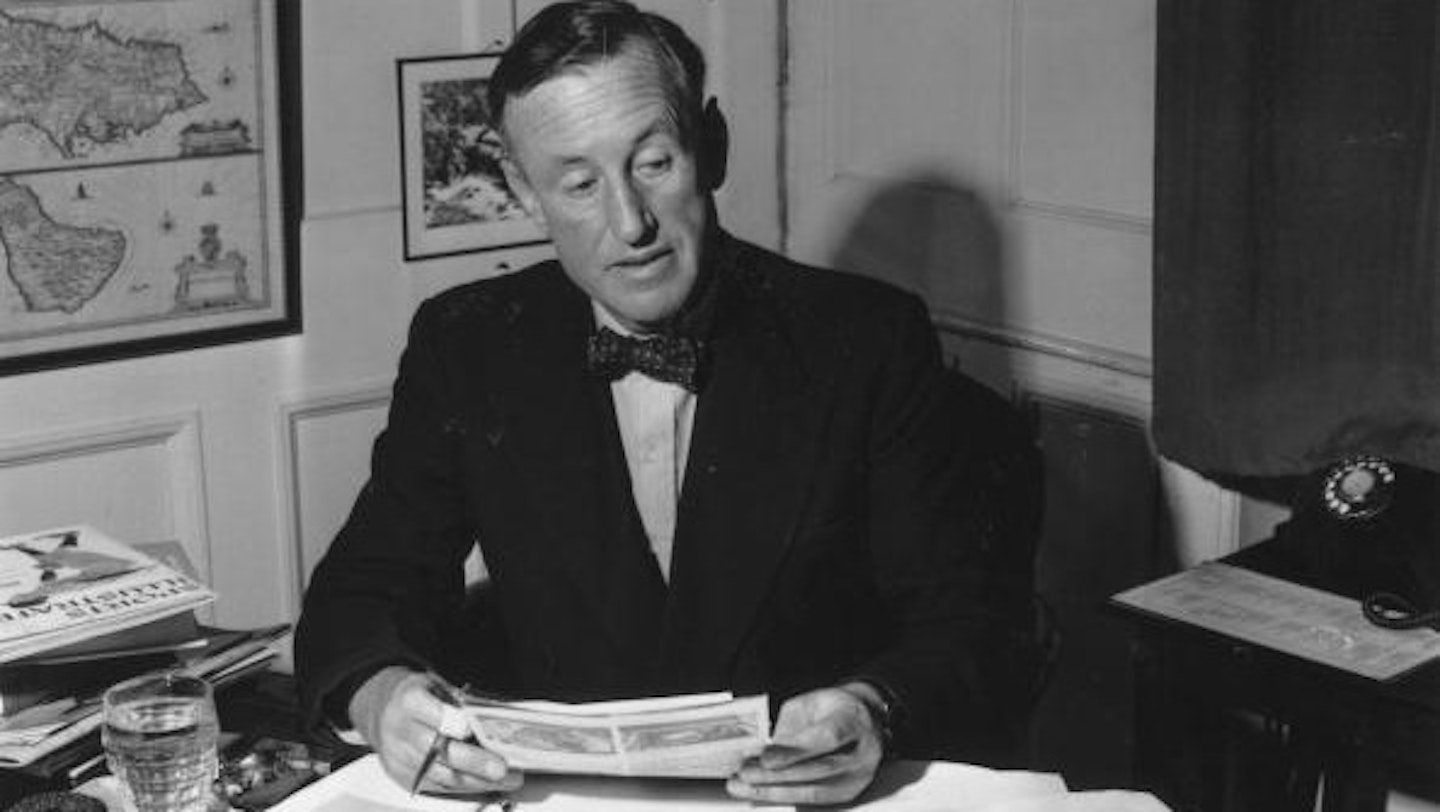
Where are they from?
Most of the Bond films’ titles obviously come from Ian Fleming’s original stories, regardless of how wildly their plots veered away from the source. In total, thirteen of the official Bond films are named after Fleming’s novels and four after his short stories. Only one was altered: 'From A View To A Kill' would lose its initial preposition despite being trailed with its original title in the credits of the previous film, Octopussy.
Are they relevant?
Those that are relevant are usually the ones that share a character’s name (Dr. No, Goldfinger, Octopussy), but many just employ one of the cool-sounding phrases that Fleming loved to use (Live And Let Die, For Your Eyes Only). The mission 007 is given in the fourth Bond film is bafflingly called Operation Thunderball, possibly Fleming’s most convoluted way of shoehorning in an awesome made-up word.
The Adapted One
The title: Licence To Kill
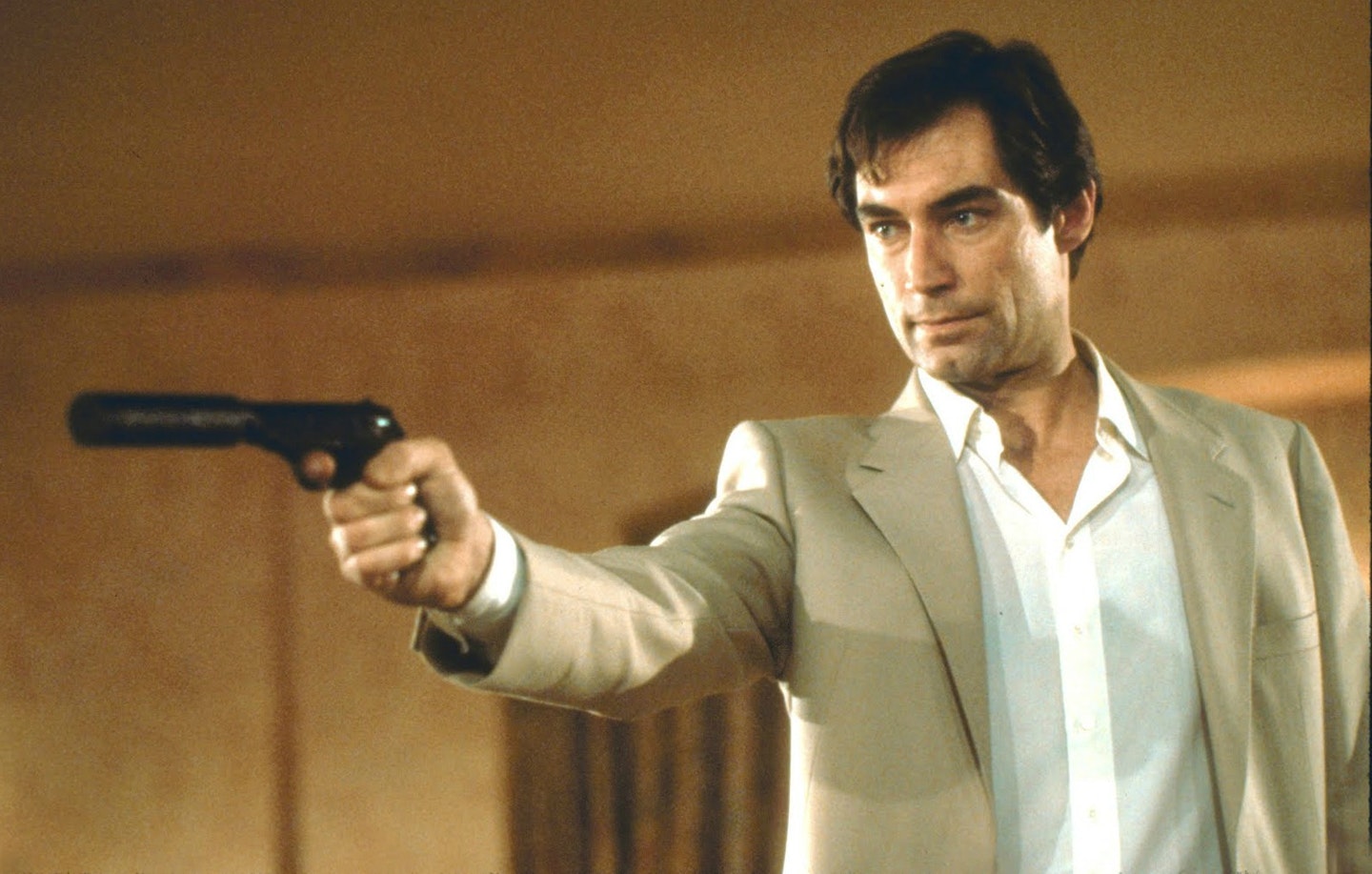
Where’s it from?
Timothy Dalton’s second Bond film – and the first not to take its name from Fleming – was originally titled Licence Revoked, an obvious reference to M’s firing of 007 after he refuses to give up the hunt for whoever fed his CIA chum Felix Leiter to a hungry shark. When confusion arose due not only to John Gardner’s similarly-named Bond novel Licence Renewed, but also the popular American use of the phrase “licence revoked” in relation to confiscated driving licences, the film assumed itsmore lethal and more obviously Bondian title.
Is it relevant?
Only in that everyone knows the double-0 means Bond is permitted to commit murder in the name of Her Majesty’s Secret Service, although it’s odd when you consider he spends most of this film unlicenced to kill, but does so anyway. Frequently.
The Jamaican One
The title: GoldenEye
Where’s it from?
When Pierce Brosnan took over as Bond, his first film was named after Ian Fleming’s estate in Jamaica, which Fleming may in turn have named after Operation Goldeneye, his own WWII plan for maintaining communication between Britain and Gibraltar in the event of Nazi occupation of the latter. The capitalisation of the second ‘E’ without splitting the word in two remains baffling but undeniably groovy.
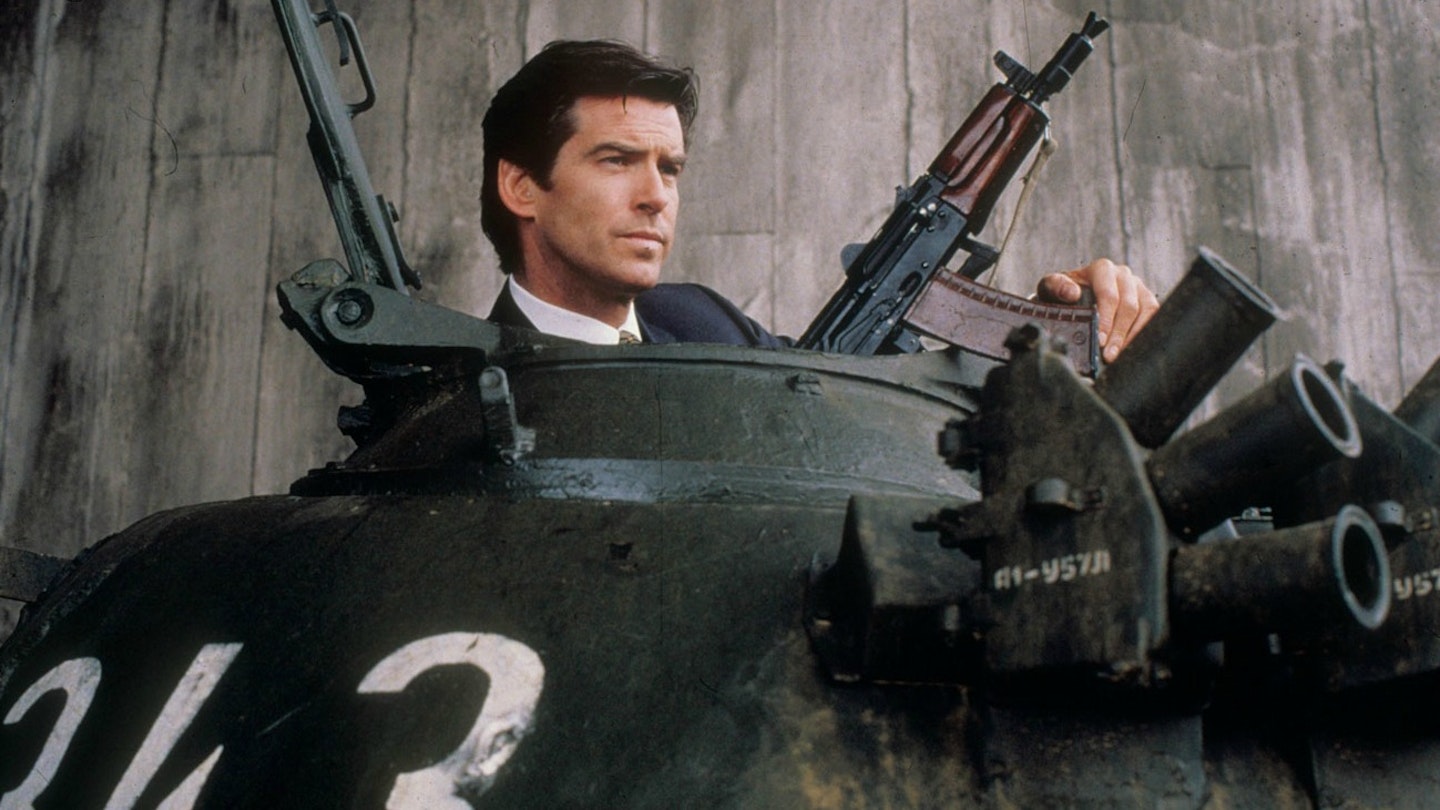
Is it relevant?
In the plot, the GoldenEye is the MacGuffin that rogue agent Sean Bean nicks in order to control electromagnetic pulse-firing space rockets. Presumably it gets its name from the amber-coloured and rather cheap-looking bauble in its centre, so why the film isn’t called AmberBauble is a bit of a puzzler.
The Beatle-Inspired One
The title: Tomorrow Never Dies
Where’s it from?
Scriptwriter Bruce Feirstein came up with Tomorrow Never Lies as both the title of the film and the slogan of the media mogul villain’s newspaper, ‘Tomorrow’. He claims it came to him while listening to The Beatles’ Tomorrow Never Knows, which has nothing at all to do with global press magnates as far as we know. Legend has it that when the title was faxed to MGM, an assistant made a tiny typo, and the film received its new, completely nonsensical title: Tomorrow Never Dies.
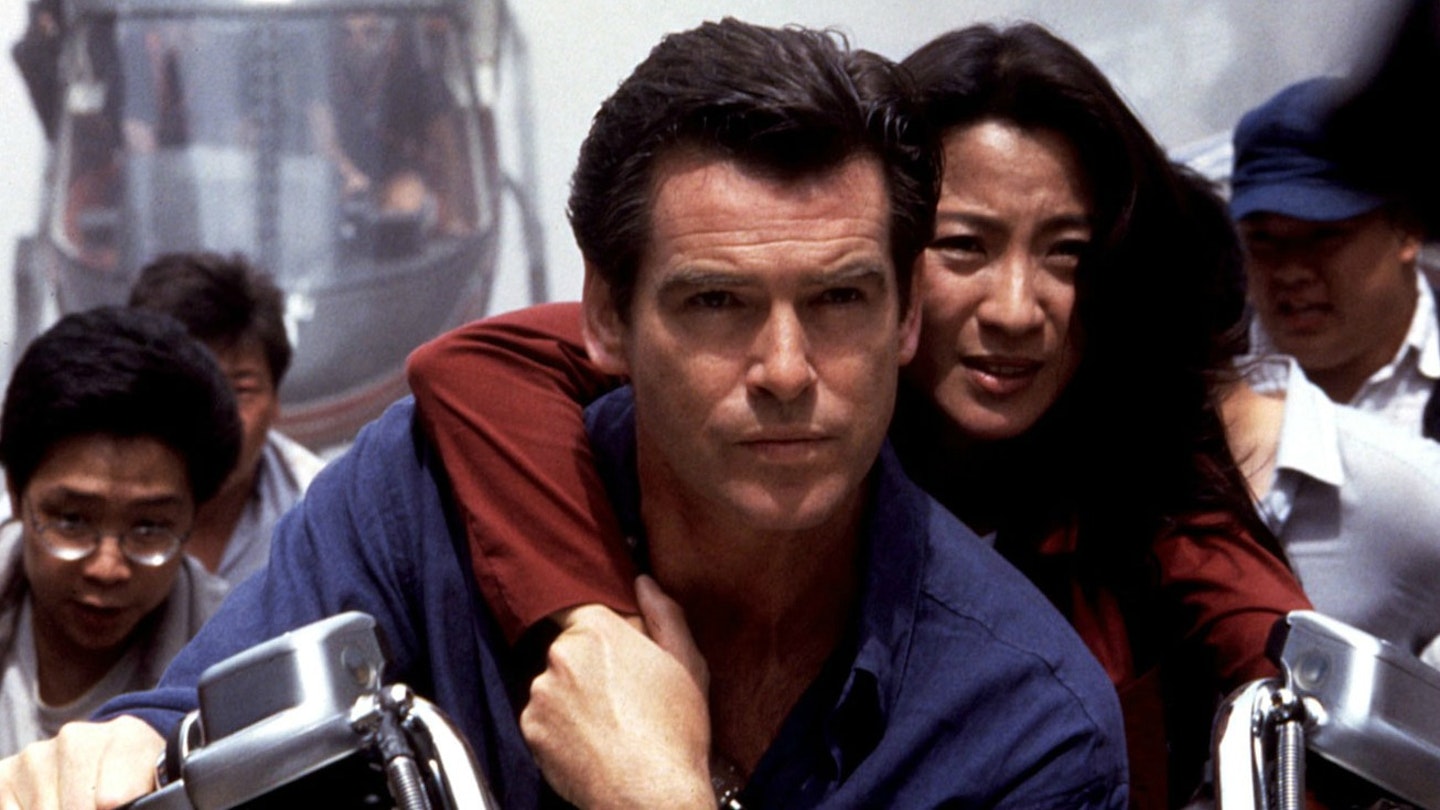
Is it relevant?
Not any more, thanks to that typo. “Lies” wouldn’t have made much more sense, but “Dies” smacks of a studio desperate to make a film sound cooler and more Bond-y by having a life-or-death-related word in it (see also Live And Let Die, A View To A Kill, The Living Daylights).
The Heraldic One
The title: The World Is Not Enough
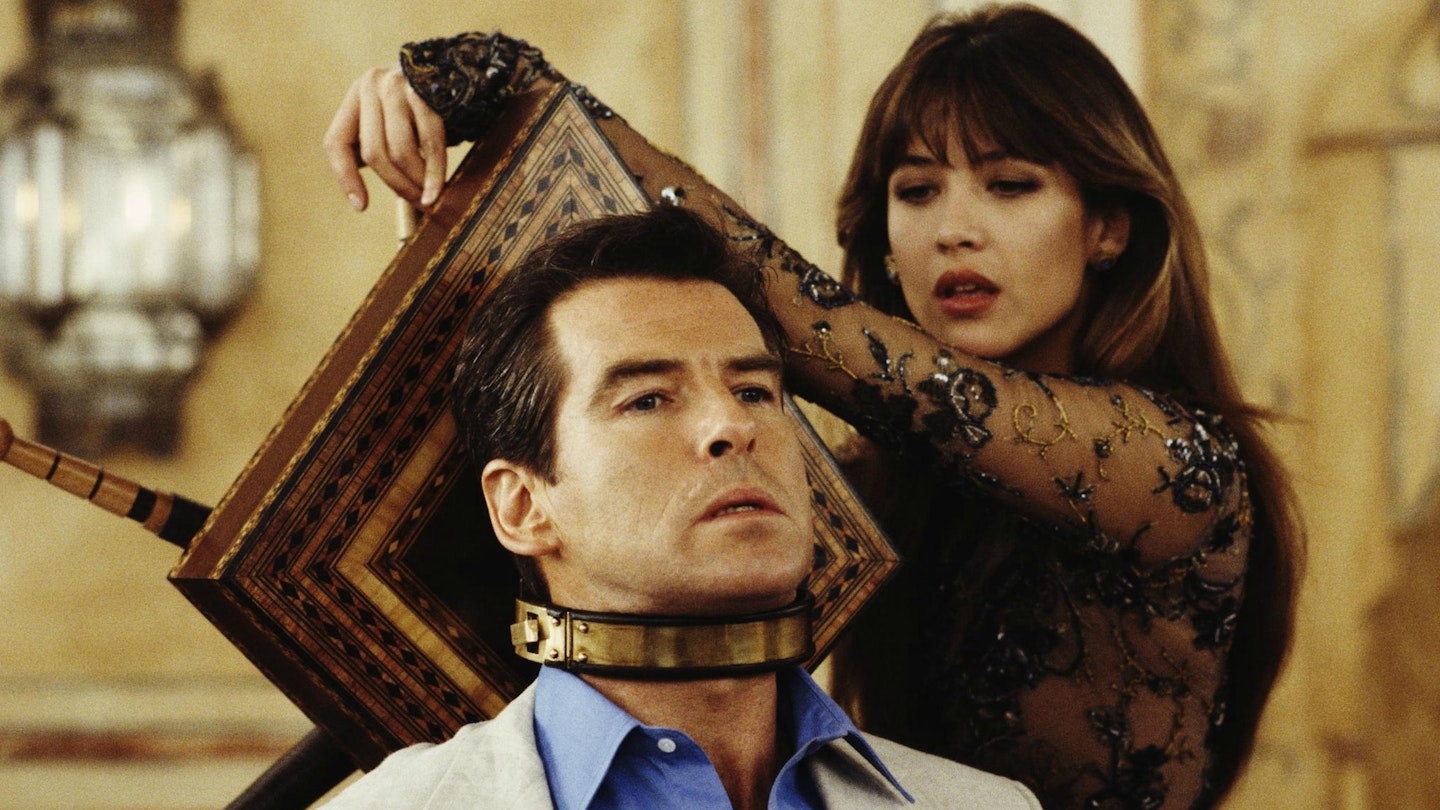
Where’s it from?
It’s not a Fleming title, but James Bond’s creator inserted the phrase (believed to originate from Alexander The Great’s epitaph) into his 1963 novel On Her Majesty’s Secret Service as the family motto of a Sir Thomas Bond, which 007 discovers while assuming his cover as a heraldry boffin.
Is it relevant?
Barely. In a tortuous (and torturous) bit of scripting, Bond finds the time to wheeze the title out while having his windpipe crushed by villainess Elektra King. Surely it would have made more sense for her to say it, what with her being a greedy megalomaniac and all? In fact, shouldn’t it be the family motto of every Bond villain?
The Poetic One
The title: Die Another Day
Where’s it from?
A.E. Housman’s 1896 poem A Shropshire Lad featured the line “But since the man that runs away / Lives to die another day”. By this point you have to wonder if the scriptwriters are just scouring the internet looking for easily-marketable uses of the word “die”.
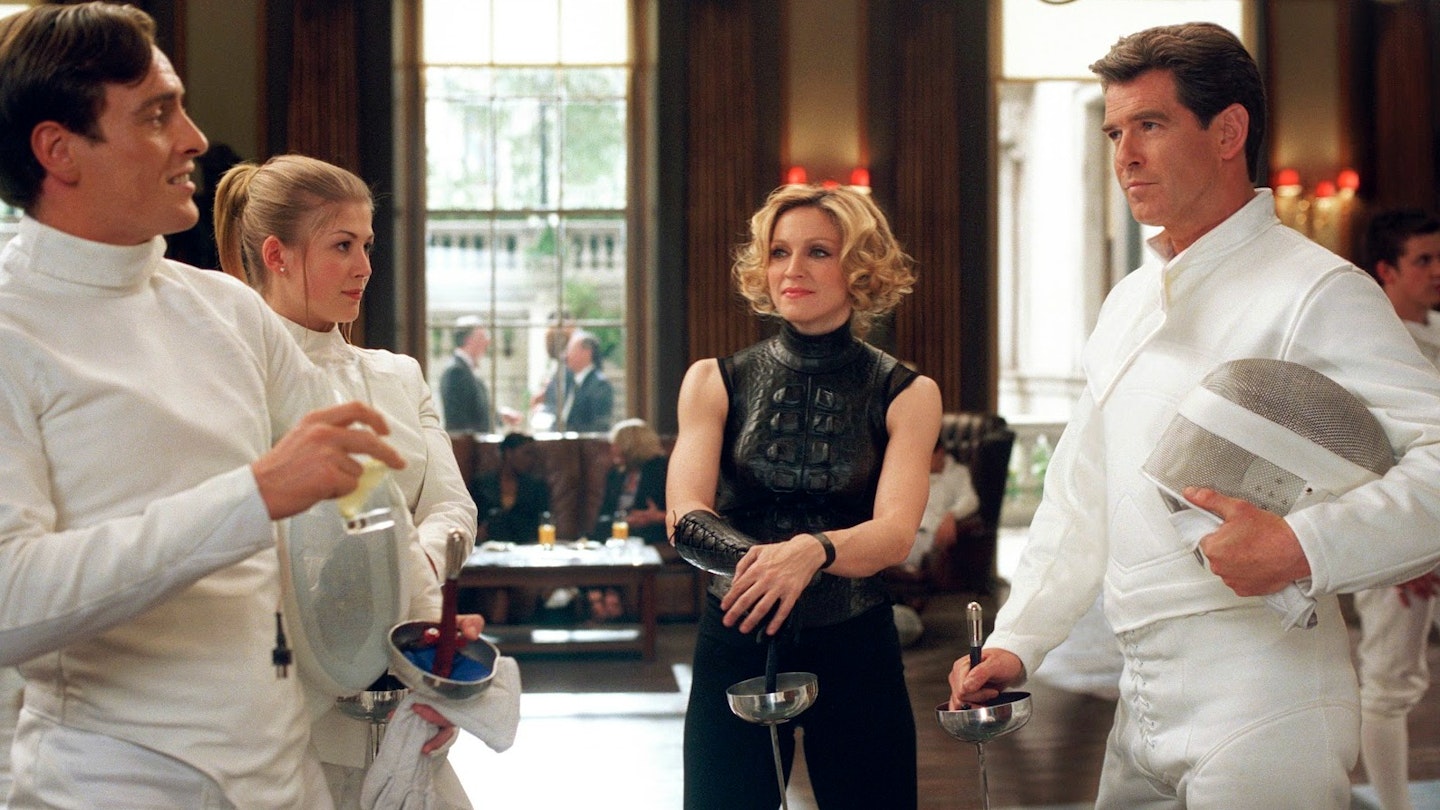
Is it relevant?
Tenuously. Bond paraphrases Housman’s poem (he’s obviously a fan) in a quip to the villain, Gustav Graves, who apparently died in the film’s pre-title sequence only to miraculously survive and return with a completely new face. And voice. And body. Given Die Another Day’s insistence on shoehorning in references to previous Bond flicks, wouldn’t it have been more in keeping for Bond to tell Graves: “You only live twice”?
